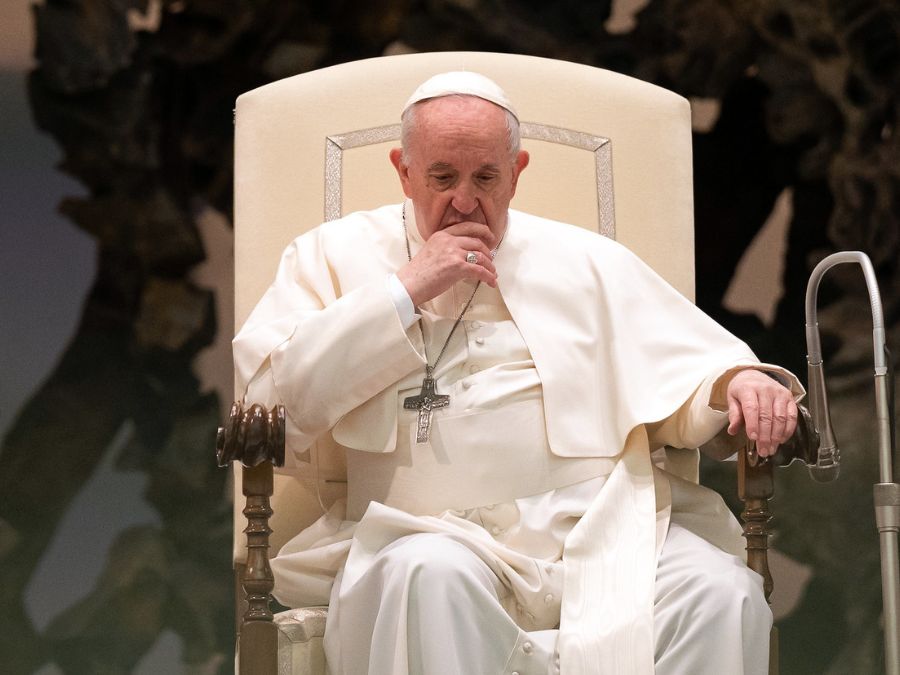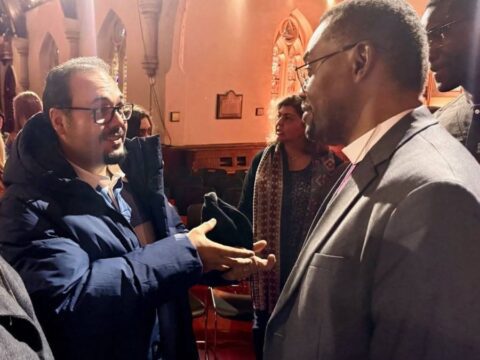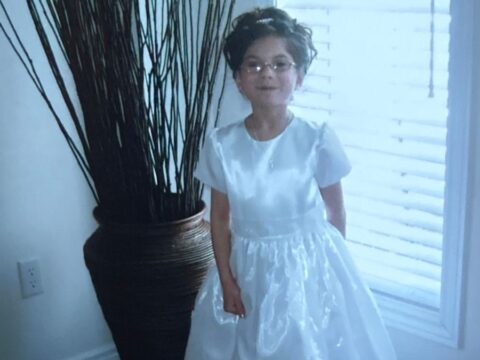For decades, the story of Christianity around the world has been understood in simple brushstrokes: emptying pews in Europe and North America; burgeoning churches in developing countries. But a new picture is emerging: Christian affiliation is now declining in parts of the Global South.
“In Latin America,” says Conrad Hackett, the Pew Research Center’s associate director of research and senior demographer, “there seems to be a kind of growing momentum in the decline of Christian identity.”
You may unsubscribe from any of our newsletters at any time.
Pew researchers studied 111 countries. In 35 of them, the share of people identifying with any religion dropped by at least five percentage points between 2010 and 2020.
But it’s in Latin America, along with the Caribbean, that the familiar plot line is being most dramatically rewritten. Chile saw a 17-point decline; Uruguay — long regarded as Latin America’s most secular nation — deepened its secular streak with a 16-point drop. “Uruguay has long had the highest share of people with no religion in the Americas, higher than the U.S. or Canada. We see that trend continuing — and we see countries that had higher shares of Christian identification in Latin America having those numbers drop.” Bolivia, Brazil and Mexico registered smaller but conspicuous dips. Overall, the region’s religiously unaffiliated population has surged by 67 percent — a striking shift for a Catholic stronghold.
According to Hackett, it’s all part of what sociologists recognize as the so-called secular transition process. Researchers describe this slow drift away from religion as unfolding incrementally. First, people show up less often — the pews empty before the beliefs disappear. Over time, religion holds less sway over daily life, and then people disaffiliate altogether. “It has to do with what behaviours cost the most in terms of economic resources and time,” he says. “If you’re going to be active in a religious community, then that is an investment of time and usually of money. As religion begins to fade in people’s lives, one of the first things that they pull back on is their involvement in a religious community.”
It’s akin, he says, to the fertility transition — the way families in industrializing societies gradually moved from having copious kids to maybe one or two. And once the shift takes hold, it’s remarkably hard to undo.
These changes run through family storylines, often resulting in the abandonment of generations-long identities and practices in the course of a single lifetime. Nicolás Poblete, a 23-year-old student in Santiago, Chile, grew up in a Catholic family and had the textbook Catholic upbringing. “We went to Mass together, and I did both my First Communion and later my Confirmation. At the time, faith was something shared with my family — it gave rhythm and meaning to our Sundays, to holidays and even to small everyday moments.”
Looking back, he says those experiences still shape how he understands spirituality — even though he no longer attends church. “I still carry that sense of connection with God,” he says.
He’s hardly alone. Across Chile, young and old alike are disentangling themselves from the familiar rituals of Catholic life.
According to Henri Gooren, a professor of cultural anthropology at Oakland University in Michigan, the Catholic Church’s abuse scandals and conservative stances have alienated a generation. “Chile has very authoritarian churches with a lack of accountability,” he observes.
More on Broadview:
- 5 reasons Canadians are leaving religion
- Ontario’s living wage just went up — here’s why that’s important
- The rise of the non-religious in Canada
Whereas Chile reflects a generational recoil from institutional religion, Uruguay offers a glimpse of something older and more settled — a society where secularism is less a reaction than a cultural inheritance. Modelled after French laïcité, Uruguay hasn’t so much abandoned belief as rearranged it. Néstor Da Costa, a professor of society and religion at the Catholic University of Uruguay, terms it “enchanted secularization”: belief shedding its institutional shell while retaining a spiritual pulse. “People didn’t pass from believers to atheists,” Da Costa explains. “They went from believers to another wave.”
This new iteration of spirituality manifests in personal devotion and meaning-making outside of sanctuary walls: some find it in prayer and reflection inspired by the Catholic tradition, others in New Age practices. Uruguay’s long-established secularism — a sharp church-state divide paired with progressive policies often at odds with church doctrine — has cultivated a culture where personal faith thrives without clerical oversight. In Chile, now too, spirituality has drifted beyond the institution’s reach, with throngs of devotees of all ages flocking to shrines during religious festivals even as weekly Mass attendance ebbs.
Much of Latin America mirrors the shifts in Chile and Uruguay, albeit unevenly. Gooren notes that in nearly every country, young people are stepping back from religious institutions — Catholic, Pentecostal, even Mormon. “For decades, the story about Latin America was about the phenomenal growth of Protestantism and especially Pentecostalism,” says Gooren. “Now the non-religious population has grown a lot … and Pentecostal growth seems to be stabilizing or even flatlining in a lot of countries.”
Doctrinal disillusionment, education and class each play a role: young middle- and upper-class people, especially those frustrated by what they see as outdated teachings on gender, sexuality and science, are increasingly unhooking from church life. “I talk to a lot of young people who are really disappointed… both Catholics and Pentecostals, in their churches, saying, ‘Oh, it’s old-fashioned. It’s not keeping up with the time,’” Gooren adds.
Authoritarian leadership, political entanglements and perceived hypocrisy quicken the drift. Think Brazil’s former president Jair Bolsonaro — his far-right presidency was backed by evangelical leaders, attracting the ire of many younger people.
Yet Latin America’s story isn’t one of pure decline. Even as church pews empty, belief remains remarkably persistent. Across the region, 60 to 80 percent of those who leave formal religion still believe in God or the afterlife. Prayer, ritual and personal meaning-making — often through a creative blending of traditions dating back to colonization — have migrated out of sanctuaries and into homes, shrines, cafes and online communities. The erosion of religious authority — the necessary prelude to secularization — is well underway, hastened by scandals, rigid hierarchies and a general weariness with dogma. “It may be too early to say whether people will completely stop affiliating or lose belief in God,” Gooren observes, “but the erosion of authority is happening.”
Most of the region, he adds, remains in a nascent phase of secular transition: worship declines, authority weakens, but belief carries on. Chile and Uruguay may be further along, but other countries — Honduras, Guatemala, El Salvador — preserve their Pentecostal zeal. Notably, these are also among the region’s poorer nations, where religion often serves as a moral and social anchor amid economic pressures, political instability and higher crime.
In Latin America, faith is bending, stretching, recalibrating. For many, it’s less about abandoning belief than reimagining how to live spiritually in the modern world — experimenting with how to engage differently with the sacred in a region long defined by the presence of institutional religion.
***
Julie McGonegal is a journalist in Elora, Ont.














